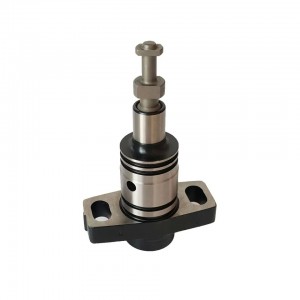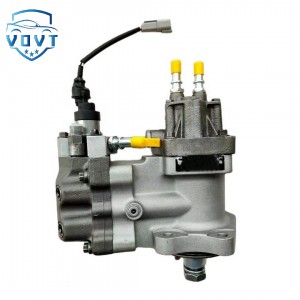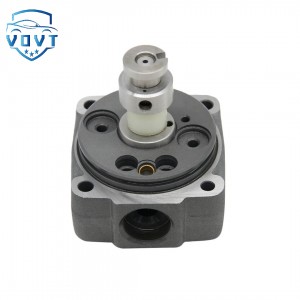Good Price Diesel Pump Head Rotor 1 468 376 001 1468376001 Fuel Injection Pump Elements Engine Spare Parts
products description
| Reference. Codes | 1 468 376 001 |
| Application | / |
| MOQ | 2PCS |
| Certification | ISO9001 |
| Place of Origin | China |
| Packaging | Neutral packing |
| Quality Control | 100% tested before shipment |
| Lead time | 7~15 working days |
| Payment | T/T, L/C, Paypal, Western Union or as your requirement |
Analysis of the Influence of Pump Head Geometric Parameters on Flow Distribution and Pressure Stability
Abstract
The pump head is a key structural element in high-pressure fuel injection systems, directly affecting fuel delivery performance. Its geometric parameters influence both internal flow distribution and overall pressure stability, thereby determining injection accuracy and durability. This study investigates the impact of pump head geometry—including chamber dimensions, inlet/outlet port configuration, and transition angles—on hydraulic performance using computational fluid dynamics (CFD) and experimental validation.
1. Introduction
Modern diesel engines require highly stable injection pressures to ensure efficient combustion and reduced emissions. However, in high-pressure pumps, flow distribution imbalances and pressure fluctuations often occur due to improper pump head design. Identifying how geometric parameters affect internal flow and pressure behavior is essential for optimizing pump performance.
2. Methodology
-
Geometric parameters studied: chamber diameter, port angle, and valve seat geometry.
-
Numerical modeling: CFD simulations were conducted to evaluate velocity fields, pressure gradients, and turbulence intensity under various design configurations.
-
Experimental testing: A high-pressure fuel pump bench equipped with pressure sensors was used to validate simulation predictions under 200 MPa operating conditions.
3. Results
-
Chamber diameter: Larger diameters improved flow distribution uniformity but increased dead volume, which caused delayed pressure response.
-
Port configuration: Symmetrical port angles enhanced flow balance and reduced localized turbulence. Asymmetrical designs resulted in uneven flow distribution, leading to cyclic pressure oscillations.
-
Transition geometry: Smooth fillet transitions between chamber and port significantly reduced flow separation, lowering pressure fluctuation amplitude by approximately 12% compared with sharp-edge designs.
4. Discussion
The analysis reveals a trade-off between flow distribution and pressure response. While larger chambers promote uniform flow, they weaken dynamic stability. Conversely, smaller chambers improve responsiveness but increase flow velocity gradients, raising cavitation risk. Optimized designs require careful balancing of chamber size and port geometry to achieve both uniform flow and stable pressure.
5. Experimental Validation
Bench test results aligned with CFD predictions. The optimized pump head geometry reduced peak-to-peak pressure fluctuation by 15% and improved cycle-to-cycle injection consistency. Moreover, smoother port transitions demonstrated longer durability due to reduced cavitation-induced erosion.
6. Conclusion
Geometric parameters of the pump head significantly affect flow distribution and pressure stability in high-pressure fuel injection systems. Optimized chamber dimensions, symmetrical port configurations, and smooth transition geometries enhance hydraulic performance and component reliability. These insights provide valuable guidance for the design of next-generation diesel fuel pumps to meet stringent efficiency and emission requirements.























